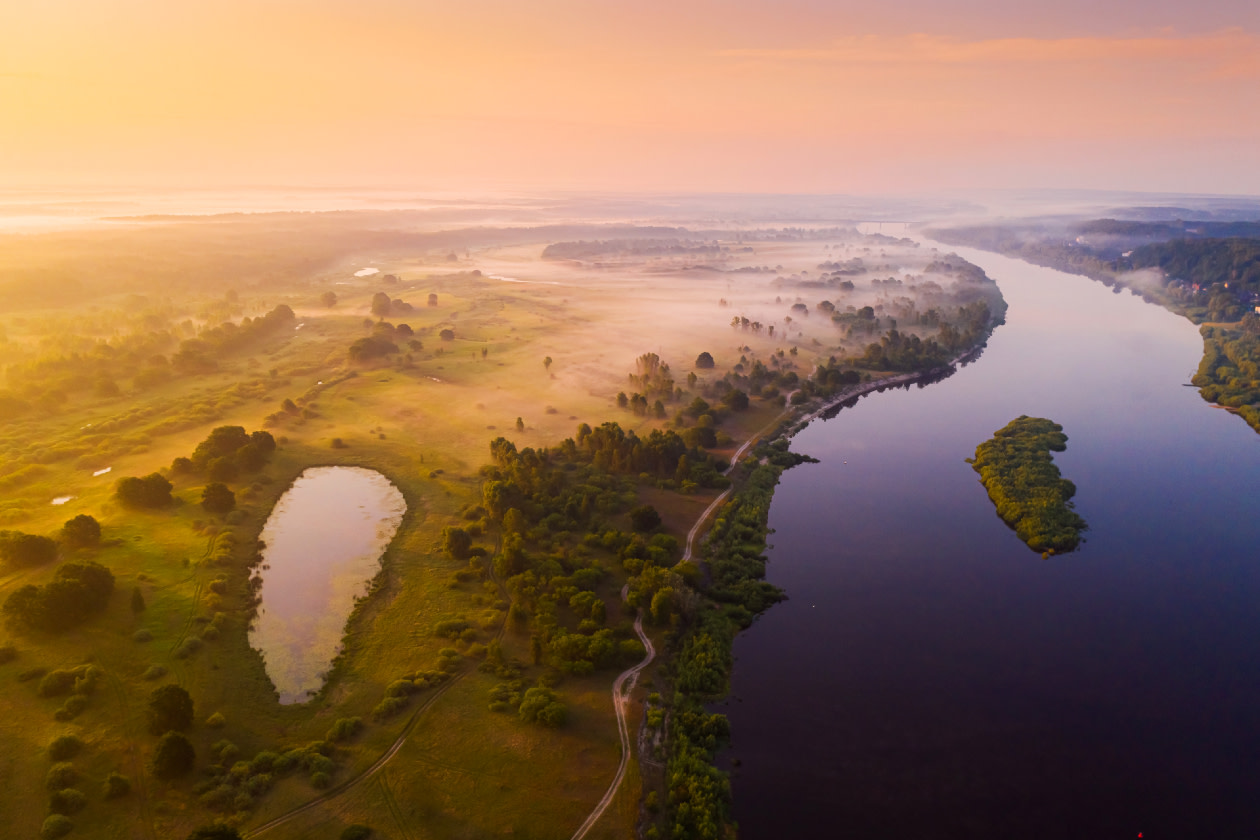Climate change can be a natural process where temperature, rainfall, wind, and other elements vary over decades or longer. Over millions of years, our world has been warmer and colder than it is now.
But today we’re experiencing unprecedented rapid warming, largely driven by increased carbon dioxide emissions and other human activities.
Across Europe, scalding temperatures are increasingly claiming lives. In the Middle East, more than 1,300 Hajj pilgrims have died from the heat in Mecca as record temperatures exceed 50°C. In the capital of India, one of the largest hospitals has opened a dedicated heat stroke emergency room to deal with the unprecedented numbers of heat-related deaths.
Rising temperatures aren’t just affecting life on land. On an average day last year, nearly one third of the ocean was gripped by a marine heatwave.
High temperatures impact the vitality of animals and plants. It means every one of us is, or will be, impacted by our changing climate.
How could climate change impact my investments?
Climate change can directly impact people, environments, and infrastructure.
For instance, rising temperatures lead to more frequent and severe extreme weather events like hurricanes, floods, and wildfires. These can destroy homes, factories, and roads, leading to significant financial losses.
If a company you’re invested in has its operations or supply chains disrupted, it can reduce productivity and increase costs.
For example, Pacific Gas and Electric Company (PG&E) in California faced massive financial losses and a significant share price fall after being found liable for several devastating wildfires in 2017 and 2018 – these were exacerbated by prolonged droughts and higher temperatures. The company filed for bankruptcy in 2019 following substantial damages claims.
These risks can also have indirect effects on participants in the economy. For example, rising insurance premiums due to increased natural disasters can affect both businesses and consumers. Companies that rely heavily on natural resources might face shortages or higher prices as ecosystems change.
All of this can mean the value of the company you are investing in depreciates – through disruption of business, destruction of assets, or the business becoming redundant in our changing economy.
If you want to learn more about investing responsibly, explore our Responsible Investment hub.
What can investors do to reduce these risks?
One approach is to invest in companies that are proactive about addressing climate change-related risks.
This includes businesses that are reducing their carbon footprints, adopting sustainable practices, and preparing for the impacts of a changing climate.
These companies are often better positioned to handle future regulations and shifting market demands.
Another strategy is to diversify your investments across different sectors and geographies. By not putting all your eggs in one basket, you can reduce the risk of a single climate-related event significantly impacting your entire portfolio.
Finally, you could think about investing in green technologies and renewable energy. These sectors are likely to grow as the world transitions away from fossil fuels, potentially offering attractive returns, while supporting the fight against climate change. Remember though, no returns are ever guaranteed.
While climate change poses significant risks to investments, it also offers opportunities. By being proactive, investors can navigate these challenges and potentially find rewarding opportunities in the transition to a more sustainable economy.
This article isn’t personal advice. Investments can rise and fall in value, so you could get back less than you invest. If you’re not sure if an investment’s right for you, ask for financial advice.
2 fund ideas
Investing in these funds isn’t right for everyone. Investors should only invest if the fund’s objectives are aligned with their own, and there’s a specific need for the type of investment being made. Investors should understand the specific risks of a fund before they invest, and make sure any new investment forms part of a diversified portfolio.
For more details on each fund and its risks, use the links to their factsheets and key investor information.
BNY Mellon Sustainable Real Return
The BNY Mellon Sustainable Real Return fund invests in a combination of stocks, corporate bonds, government bonds, commodities and cash with the aim of making positive returns in a variety of market conditions.
The fund’s sustainable ‘red lines’ mean companies incompatible with limiting global warming below 2°C aren’t even considered. It also won’t invest in companies violating the UN Global Compact Principles, or any company that makes more than 10% of its revenues from tobacco, and a variety of other ‘sin stocks’.
Investors should note this fund can invest in derivatives, high-yield bonds, and emerging markets. The fund may invest more than 35% in securities issued or guaranteed by a member state of the European Economic Area or other countries listed in the fund’s Prospectus. These factors add risk.
This fund takes a more conservative approach to sustainable investing, whilst only considering companies compatible with a low carbon world.
Legal & General Future World ESG Developed Index
Legal & General Future World ESG Developed Index aims to track the performance of the Solactive L&G ESG Developed Markets Index. This index is made up of nearly 1,400 companies from across the globe, currently focused around sectors like technology, industrials and commodities.
The index invests more in companies that score well on a variety of ESG criteria.
This includes climate-related metrics like the level of carbon emissions generated, as well as broader ESG factors like the number of women on the board and the quality of disclosure on executive pay.
It also invests less in companies that score poorly on these measures.
The fund won't invest in persistent violators of the UN Global Compact Principles (a UN pact on human rights, labour, the environment and anti-corruption), or companies with significant involvement in tobacco, thermal coal, oil sands or civilian firearms. Controversial weapons (like cluster munitions, anti-personnel mines and chemical and biological weapons) are also excluded.
Investors should note the fund invests in smaller companies, which adds risk.
This fund gives investors broad exposure to developed markets which is tilted towards lower carbon companies, while offering consistent emissions reductions.
If you want to learn more about investing responsibly, explore our Responsible Investment hub.


